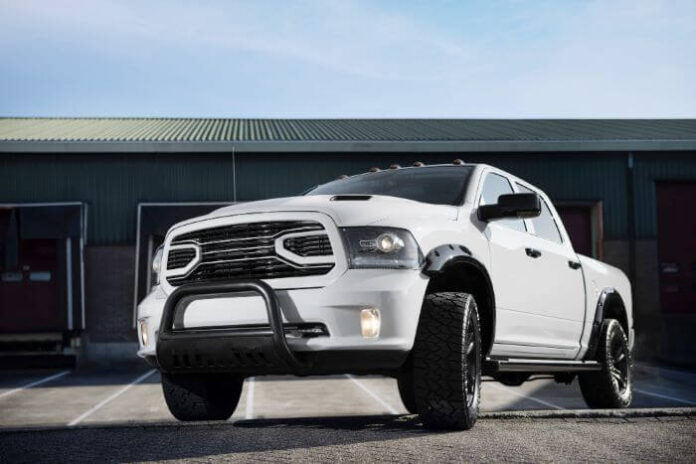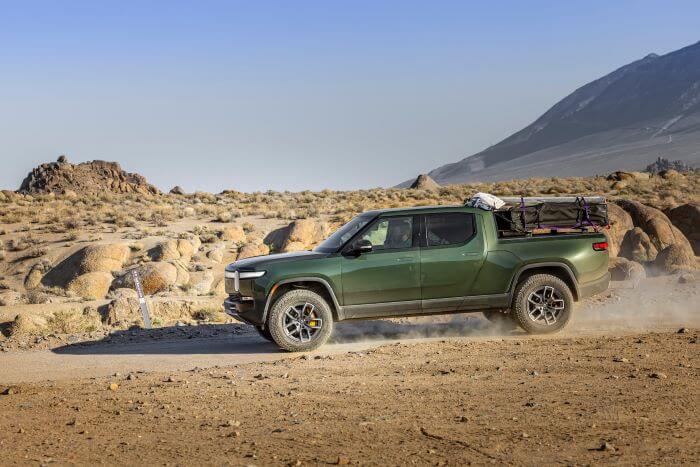In recent years, the electric vehicle (EV) market has seen remarkable growth, with several companies vying for a slice of the EV pie. One notable contender is Rivian, which has made headlines for its innovative products but also for its financial roller-coaster ride.
This has led market observers and potential investors to ask, “Is Rivian going out of business?” If you are a loyal fan of Rivian or just an electric vehicle enthusiast, this question might have once crossed your mind too, especially with the recent event happening at the company.
So, is Rivian going out of business? Just keep reading as we bring answers to many questions you might have in your mind concerning Rivian, the giant electric car producer!
Is Rivian Going Out of Business?
Despite the buzz around its financial losses and stock price decline, declaring that Rivian is going out of business might be premature. So, if you want to know what we think about the question, we will say Rivian is not going out of business yet!
Like many growing companies, especially in the innovative EV sector, Rivian is in a phase where heavy investment in technology, infrastructure, and market penetration is vital. These investments often lead to significant short-term losses.
However, these are generally strategic moves, laying the groundwork for potential long-term profitability and market dominance.
The EV market is notoriously competitive and laden with high entry barriers, including substantial capital requirements, technology development, and regulatory compliance.
Rivian’s recent financial dips do raise eyebrows, but they don’t necessarily spell doom for the company. Many successful companies have faced similar hurdles in their growth phases. So, is Rivian going out of business? The answer is no!
A Closer Look at What Rivian Stands For
Now that we have an idea of what Rivian’s future looks like, let’s take a moment to do a deeper dive into the company. Perhaps that will help you better understand why the present financial trouble the company is facing doesn’t necessarily mean the end of the road for Rivian.
Rivian, which was founded in 2009, emerged as a promising American automaker and automotive technology company with a strong emphasis on electric vehicles. The company, though based in Irvine, California, has expanded its presence with facilities spread across various locations, reflecting its growth strategy and commitment to innovation and sustainability.
Since its inception, Rivian has had its fair share of challenges, rebrandings, and strategic moves. The company initially started with the idea of a sports car but eventually found its footing in the electric pickup and SUV market. Significant investments in 2015 marked a turning point for Rivian, allowing it to acquire a manufacturing plant and announce its flagship products, the R1T and R1S.
However, despite an illustrious IPO in 2021 and ambitious future plans, Rivian has recently faced skepticism due to a drop in revenue and stock price. These financial tremors have led market watchers to wonder about its sustainability and future.
What Are Some Popular Products of Rivian?
-
R1T Pickup Truck
The R1T isn’t just a vehicle; it’s Rivian’s statement to the automotive world. With its robust design, featuring four electric motors and a choice among three battery sizes, the R1T blends performance with sustainability. Though the base model was discontinued, the R1T remains a testament to Rivian’s innovation, even bagging the Motor Truck of the Year award in 2021.
-
R1S SUV
The R1S, Rivian’s seven-passenger electric SUV, mirrors the R1T’s aesthetics and performance but caters to a different market segment. It demonstrates Rivian’s commitment to providing eco-friendly yet powerful alternatives to traditional combustion-engine models.
-
Rivian EDV (Electric Delivery Van)
Perhaps the most significant validation of Rivian’s potential is its partnership with e-commerce giant Amazon. The Rivian EDV, an electric delivery van custom-designed for Amazon, reflects a strategic alliance and a significant vote of confidence in Rivian’s technology.
The partnership includes a whopping order of 100,000 vans, signifying Rivian’s potential role in transforming logistics and transportation.
-
R1X and R2 Models
While details about the R1X remain scarce, the R2 represents Rivian’s ambition to expand its market reach. Expected to be a more affordable SUV, the R2’s anticipated launch is set for 2025, aiming to capture a broader audience with a more wallet-friendly model.
What is Presently the Financial State of Rivian?
Rivian’s financial health, as of 2023, seems to be a mix of challenges and opportunities. The company reported substantial losses amounting to $1.7 billion from April to June 2022. However, experts suggest that such losses are not unusual for burgeoning automakers due to heavy upfront investments in technology, production capabilities, and market expansion.
Importantly, Rivian has demonstrated a strong ability to raise funds, amassing significant investments from heavyweight backers. Its public offering was notably lucrative, and continuous funding rounds have injected billions into its coffers.
This substantial financial backing indicates a strong market belief in Rivian’s long-term prospects despite short-term financial losses.
Rivian Stock Experiencing Steady Decline
While Rivian’s funding narrative seems optimistic, its stock tells a different story. After reaching an all-time high post-IPO in November 2021, Rivian’s stock price began a steady decline, brought about by broader tech sell-offs in 2022. By May 2022, the company’s market value had plummeted, marking a loss of 79%.
However, this decline is not particular to Rivian alone; it mirrors trends seen across emerging tech companies and startups, especially in sectors like EVs, which are subject to market volatility and investor sentiment.
While the decline is concerning, it’s also reflective of the market’s often knee-jerk reactions to short-term stimuli, rather than a company’s long-term value.
Is Bankruptcy Around the Corner for Rivian?
Given the current data and market trends, suggesting that Rivian is on the brink of bankruptcy would not be correct. The company’s probability of bankruptcy stands at less than 26%, indicating that while risks exist, they’re not necessarily imminent or catastrophic.
Rivian’s substantial cash reserves, coupled with strong backing from high-profile investors, provide it with a cushion to weather its current challenges.
Apart from those, its strategic partnerships and confirmed orders, especially from Amazon, contribute to a potentially stable revenue stream in the coming years.
Is Rivian Presently in Debt?
Most companies, particularly in high-investment sectors like EV manufacturing, incur debt as part of their growth strategy. Rivian, too, has its share of financial liabilities.
However, the key lies in the company’s ability to manage this debt effectively and ensure it leads to growth and expansion. Current financial disclosures don’t suggest that debt is an insurmountable problem for Rivian.
Is Rivian Going Out of Business – Final Note
We are sure you now have an answer to this burning question. While Rivian faces undeniable challenges, particularly concerning its financial losses and stock performance, it is not a sign that the company is ready to wave the white flag.
With substantial financial backing, a strong product line, and strategic partnerships that bode well for Rivian future. We can safely say the company is not going out of business!
Related Articles You Might Like:








